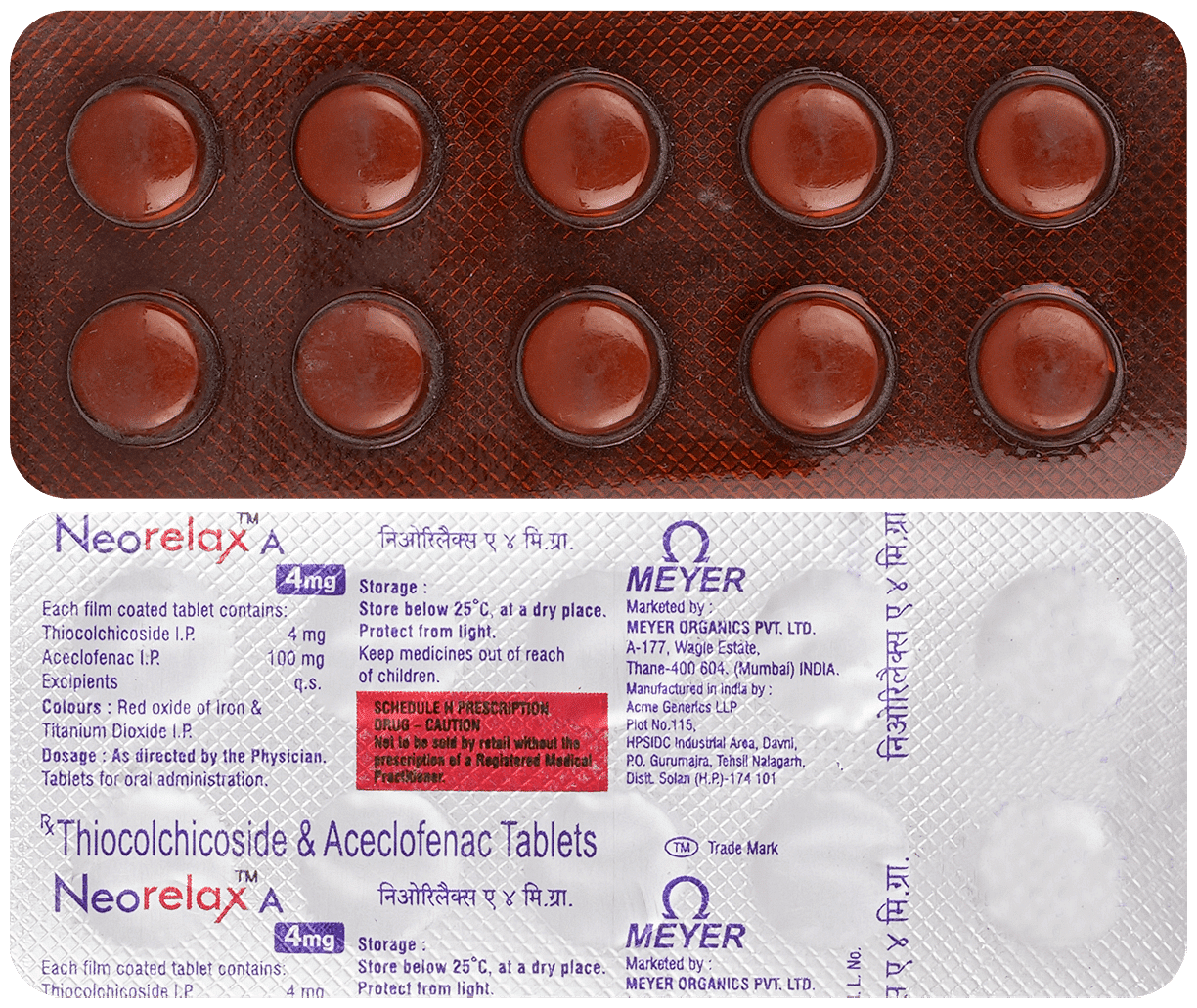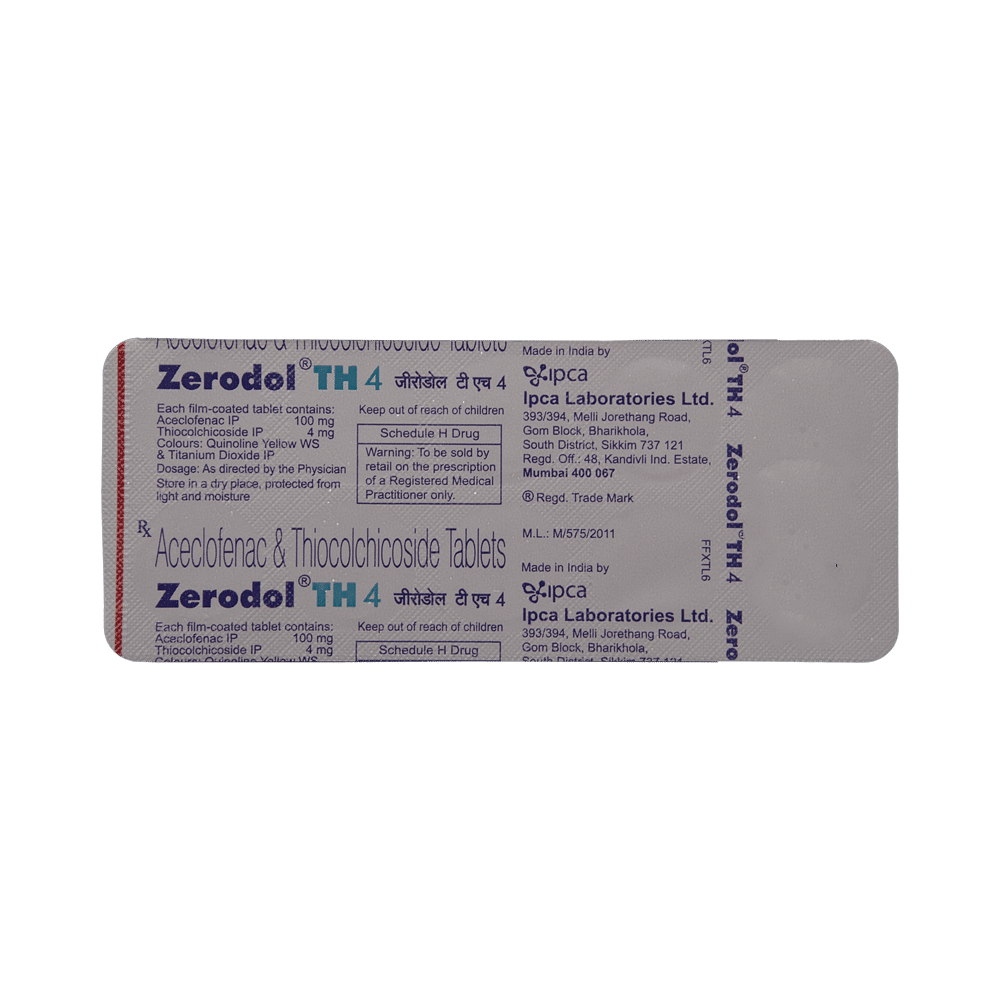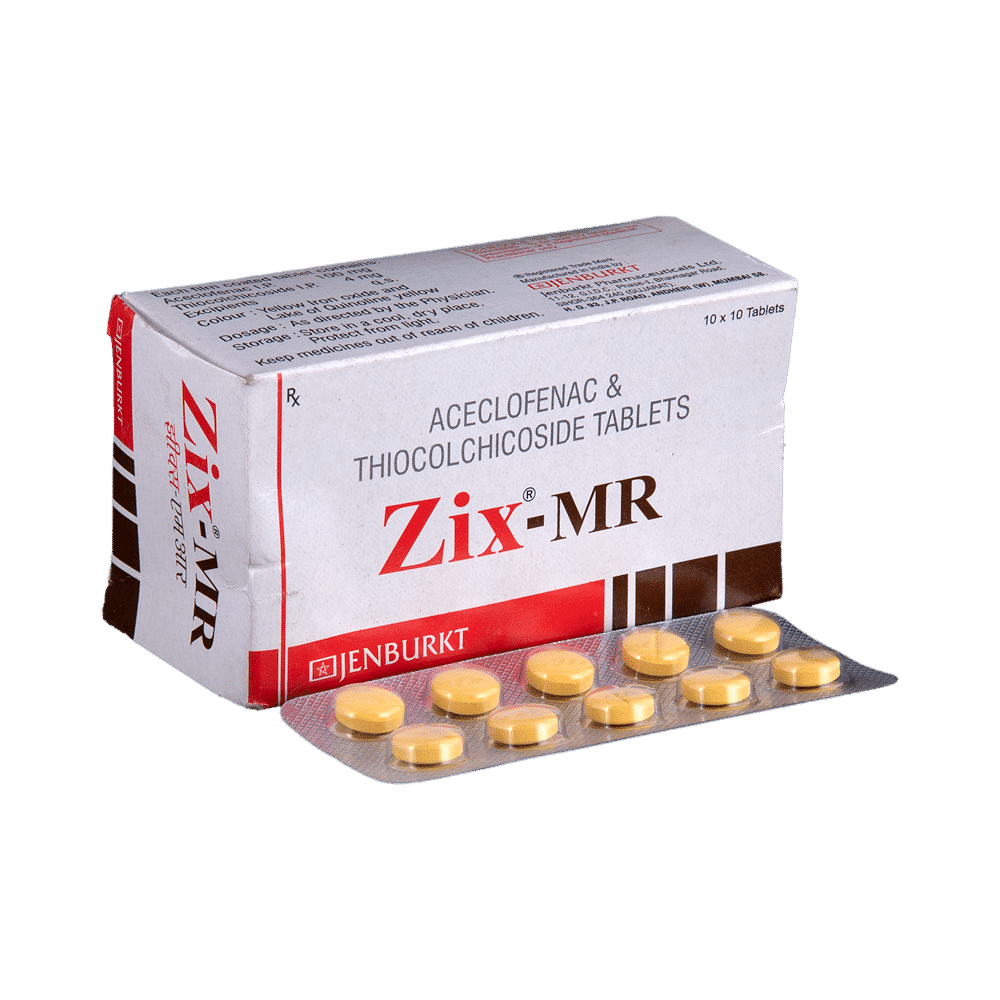
Angimed T 100mg/4mg Tablet
Manufacturer
Medons India
Salt Composition
Aceclofenac (100mg) + Thiocolchicoside (4mg)
Key Information
Short Description
Angimed T 100mg/4mg Tablet is a combination medicine used in the treatment of pain due to muscle spasms.
Dosage Form
Tablet
Introduction
Angimed T 100mg/4mg Tablet should be taken with food. This will prevent you from getting an upset stomach. You should take it regularly as advised by your doctor. Do not take more or use it for a longer duration than recommended by your doctor.
Directions for Use
Take this medicine in the dose and duration as advised by your doctor. Swallow it as a whole. Do not chew, crush or break it..Angimed T 100mg/4mg Tablet is to be taken with food.
How it works
Angimed T 100mg/4mg Tablet is a combination of two medicines: Aceclofenac and Thiocolchicoside which relieves pain and relaxes the muscles.
Quick Tips
Take it with food to avoid an upset stomach. It may cause dizziness. Do not drive or do anything requiring concentration until you know how it affects you. Avoid consuming alcohol when taking Angimed T 100mg/4mg Tablet as it may cause excessive drowsiness.
Related Medicines

Neorelax A 4mg Tablet

Zerodol TH 4 Tablet

Zix-MR Tablet

Thiozen 100mg/4mg Tablet

Acedel-TH Tablet

Freenac TH 100 mg/4 mg Tablet

Acedaz T 100mg/4mg Tablet

Elfenac T 100mg/4mg Tablet

Cylotop TH 100mg/4mg Tablet

Backflex 100mg/4mg Tablet
Frequently asked questions
What is Angimed T 100mg/4mg Tablet?
Angimed T 100mg/4mg Tablet is a combination medication containing Aceclofenac and Thiocolchicoside. It is used to relieve muscle pain by acting on the central nervous system and reducing chemical substances in the body that cause pain and inflammation.
Is it safe to use Angimed T 100mg/4mg Tablet?
Yes, Angimed T 100mg/4mg Tablet is generally considered safe for most patients. However, it may cause some common side effects like nausea, vomiting, stomach pain, heartburn, diarrhea, and other rare side effects. Inform your doctor if you experience any persistent problems due to the medication.
Can the Angimed T 100mg/4mg Tablet be stopped when my pain is relieved?
Angimed T 100mg/4mg Tablet is typically used for a short period and can be discontinued when the pain is relieved. However, it is essential to continue taking the medication as directed by your doctor if advised to do so.
Can the use of Angimed T 100mg/4mg Tablet cause dizziness?
Yes, Angimed T 100mg/4mg Tablet may cause dizziness (feeling faint, weak, unsteady, or lightheaded) in some patients. If you experience dizziness, it is recommended to rest for a while and resume the medication once you feel better.
Are there any specific contraindications associated with the use of Angimed T 100mg/4mg Tablet?
The use of Angimed T 100mg/4mg Tablet is contraindicated in patients with a known allergy to painkillers or any of the components or excipients of this medication. It is also recommended to avoid this medication in patients with a history of stomach ulcers, heart failure, high blood pressure, liver disease, or kidney disease.
Can Angimed T 100mg/4mg Tablet be taken with Vitamin B-complex?
Yes, Angimed T 100mg/4mg Tablet can be taken with Vitamin B-complex preparations. While Angimed T 100mg/4mg Tablet helps to relieve pain, Vitamin B-complex can help to correct vitamin deficiencies that may be contributing to your symptoms.
Can the use of Angimed T 100mg/4mg Tablet cause damage to kidneys?
Yes, the long-term use of Angimed T 100mg/4mg Tablet can cause damage to the kidneys. Normal kidneys produce a chemical called prostaglandins that protects them from damage. The use of painkillers can lower the levels of prostaglandins in the body, leading to kidney damage on long-term use. Patients with underlying kidney disease should consult their doctor before taking this medication.
Will Angimed T 100mg/4mg Tablet be more effective if taken in higher doses?
No, taking higher doses of Angimed T 100mg/4mg Tablet will not make it more effective, but rather can lead to increased side effects. If your symptoms are severe, consult your doctor for re-evaluation and guidance on the best course of treatment.


